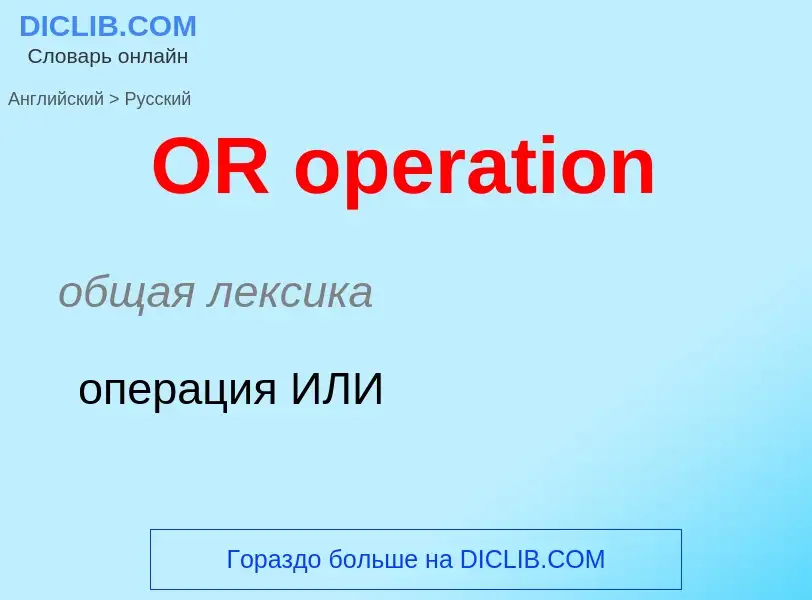ترجمة وتحليل الكلمات عن طريق الذكاء الاصطناعي ChatGPT
في هذه الصفحة يمكنك الحصول على تحليل مفصل لكلمة أو عبارة باستخدام أفضل تقنيات الذكاء الاصطناعي المتوفرة اليوم:
- كيف يتم استخدام الكلمة في اللغة
- تردد الكلمة
- ما إذا كانت الكلمة تستخدم في كثير من الأحيان في اللغة المنطوقة أو المكتوبة
- خيارات الترجمة إلى الروسية أو الإسبانية، على التوالي
- أمثلة على استخدام الكلمة (عدة عبارات مع الترجمة)
- أصل الكلمة
OR operation - ترجمة إلى الروسية
общая лексика
операция ИЛИ
математика
логическая сумма
[dis'dʒʌŋ(k)ʃ(ə)n]
общая лексика
разъединение
разобщение
дизъюнкция
разрыв
дизъюнкция, логическое сложение
дизъюнктность
разделение
расщепление
расщепляемый
анатомия
вывих
Смотрите также
существительное
общая лексика
разъединение
расчленение
отделение
разделение
логика
дизъюнкция
дизъюнктивное суждение
техника
разобщение
размыкание (электрической цепи и т. п.)
электротехника
размыкание (цепи)
تعريف
ويكيبيديا
In logic, disjunction is a logical connective typically notated as and read aloud as "or". For instance, the English language sentence "it is sunny or it is warm" can be represented in logic using the disjunctive formula , assuming that abbreviates "it is sunny" and abbreviates "it is warm".
In classical logic, disjunction is given a truth functional semantics according to which a formula is true unless both and are false. Because this semantics allows a disjunctive formula to be true when both of its disjuncts are true, it is an inclusive interpretation of disjunction, in contrast with exclusive disjunction. Classical proof theoretical treatments are often given in terms of rules such as disjunction introduction and disjunction elimination. Disjunction has also been given numerous non-classical treatments, motivated by problems including Aristotle's sea battle argument, Heisenberg's uncertainty principle, as well as the numerous mismatches between classical disjunction and its nearest equivalents in natural languages.

